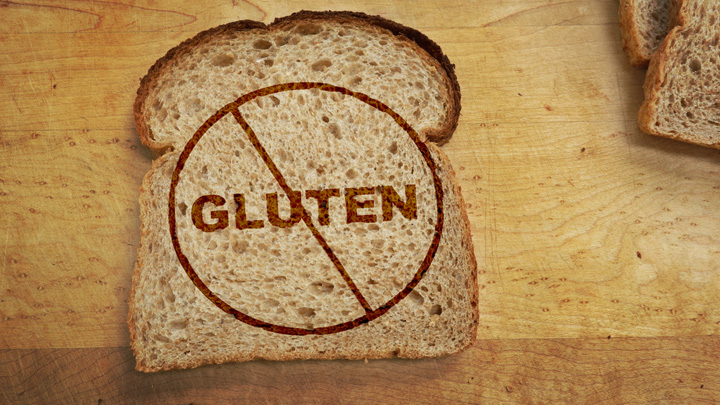10 signs you should take a break from eating gluten

Gluten can wreak havoc on our health without us realising.
You may have heard of friends or family going on a gluten-free diet, however it isn’t just a fad – there’s a good reason why some people voluntarily give up gluten, and it’s often because of the way their body feels. Then there are a small percentage of people who do have to give up gluten because of a full-blown gluten intolerance, also known as celiac disease.
Gluten is the protein found in wheat and is our main source of fibre.
Don’t automatically assume having one or more of these symptoms means you have gluten-sensitivity, because other conditions may be the cause.
Here’s 10 of the most common signs that your body is having a reaction to gluten:
1. Irregular digestion
This is one of the most common signs that you have a gluten intolerance is that your digestive habits have changed. You may have noticed excessive gas, bloating or even constipation or diarrhoea.
2. Joint problems
Inflammation is a common cause of aching knees and other joints, and can be exacerbated by gluten as it is a known inflammatory.
3. Little red bumps
If you have noticed small red bumps, these are known as Keratosis Pilaris. They are caused by the body’s inability to properly absorb fatty acids and vitamin A and is caused by an over-exposure to gluten.
4. Severe tiredness
Have you been feeling a lot more tired than usual? If you feel like you’re living in a state of fog or tiredness where every decision seems to be difficult, this may be an indication that something isn’t quite right with your body’s ability to process gluten.
5. Migraines and/or headaches
Migraines and headaches don’t always mean a gluten intolerance but those who have been diagnosed with a gluten intolerance often report intense headaches and migraines due to the increase in inflammation in the nervous system.
6. Tooth decay
A gluten sensitivity can cause your teeth to decay more than usual.
7. Hormonal imbalance
Gluten intolerance can affect your hormones, especially oestrogen, and you may have experienced hot flashes, and weight loss or gain thanks to your body’s immune response.
8. Brain fog
Gluten intolerance can have negative effects on the brain such as dizziness, lack of focus, trouble balancing, and tingling sensations.
9. Mood swings
Have you been lashing out or even feeling quite low then high, it could be something related to your diet. Talk to your doctor.
10. Depression
This is different to mood swings in that you often feel flat or uncertain – it’s also a common symptom of people who eat a number of takeaway dishes, due to the mixture of calories and wheat.
What if I have some of these symptoms?
If you have any of these symptoms or a combination of a few, you should talk to your doctor about getting tested for celiac disease. With that said, even if that test comes back negative, you may still be allergic to gluten and simply have a non-celiac gluten sensitivity.
Editor’s note: It is recommended that anyone experiencing several of these symptoms see their doctor before self-diagnosing.








 Proudly Australian owned and operated
Proudly Australian owned and operated